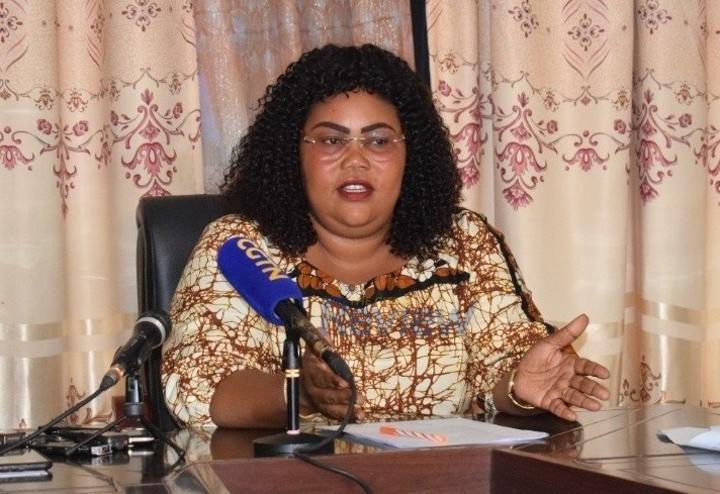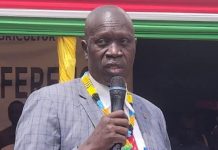Jenifer James
Africa-Press – South-Sudan. The Minister of Environment and Forestry Josephine Napwon called on the Ministry of Justice and Constitutional Affairs to explain the whereabouts of the Environmental and Forestry Bill drafted nine years ago.
Napwon told the economic conference in Juba last week that her ministry was struggling to execute some duties due to the legal gap that can be addressed through the pending law.
“There are challenges facing the Ministry of Environment in implementing the activities due to the lack of a law to guide the ministry,” Napwon said.
She stressed the economic opportunity that exists in the environment sector, saying the country could produce 3,000 megawatts of power from hydro and solar.
“Our bill has never been passed; it has been in the Ministry of Justice for nine years now. Once the parliament approves the bill, we will use of environmental resources and issue the environmental and forestry certificates,” she stated.
Napwon added that the ministry of environment and forestry will not approve any development project without the conduct of the strategic environmental assessments and environmental social impact assessments.
“South Sudan according to our nationally determined contribution is planning to produce 3,000 megawatts of power from hydro, solar, wind, geothermal, and natural gas,” Napwon said.
The minister highlighted that there are critical minerals such as lithium, cobalt, manganese, uranium, and other rare minerals are in abundance in South Sudan which are essential for the manufacturing of electric vehicles and clean transport.
According to her, about 187,850 acres of plantation were established both in irrigation and in higher rainfall areas in the past.
However, she said, currently they are piloting a system for granting concessions to attract private sector investment and involve communities in forest management and afforestation.
According to FAO estimates, afforestation, reforestation and desertification control of 5 million acres of land annually has the potential to create 4 to 5 million full-time equivalent jobs.
Napwon said some of the potential areas where jobs can be created in this sector are agriculture, afforestation, and reforestation activities, reclaiming degraded land, ecotourism, community-based forest management, planting of 100 million trees over a period of 10 years, and carbon trading.
Meanwhile, a recent rapid assessment of the Sudd, estimated that it can generate $3.3 billion annually from tourism, fish, paper production, and agriculture.
Napwon said South Sudan targets to generate an additional sequestration potential of 45 million tonnes of carbon dioxide by 2030, this is possible if we plant 100 million trees over a period of 10 years.
The minister revealed that the Ministry of Environment and Forestry is currently developing a policy and framework for carbon trading in accordance with Article 6 of the Peace Agreement.
Source: The City Review South Sudan
For More News And Analysis About South-Sudan Follow Africa-Press






